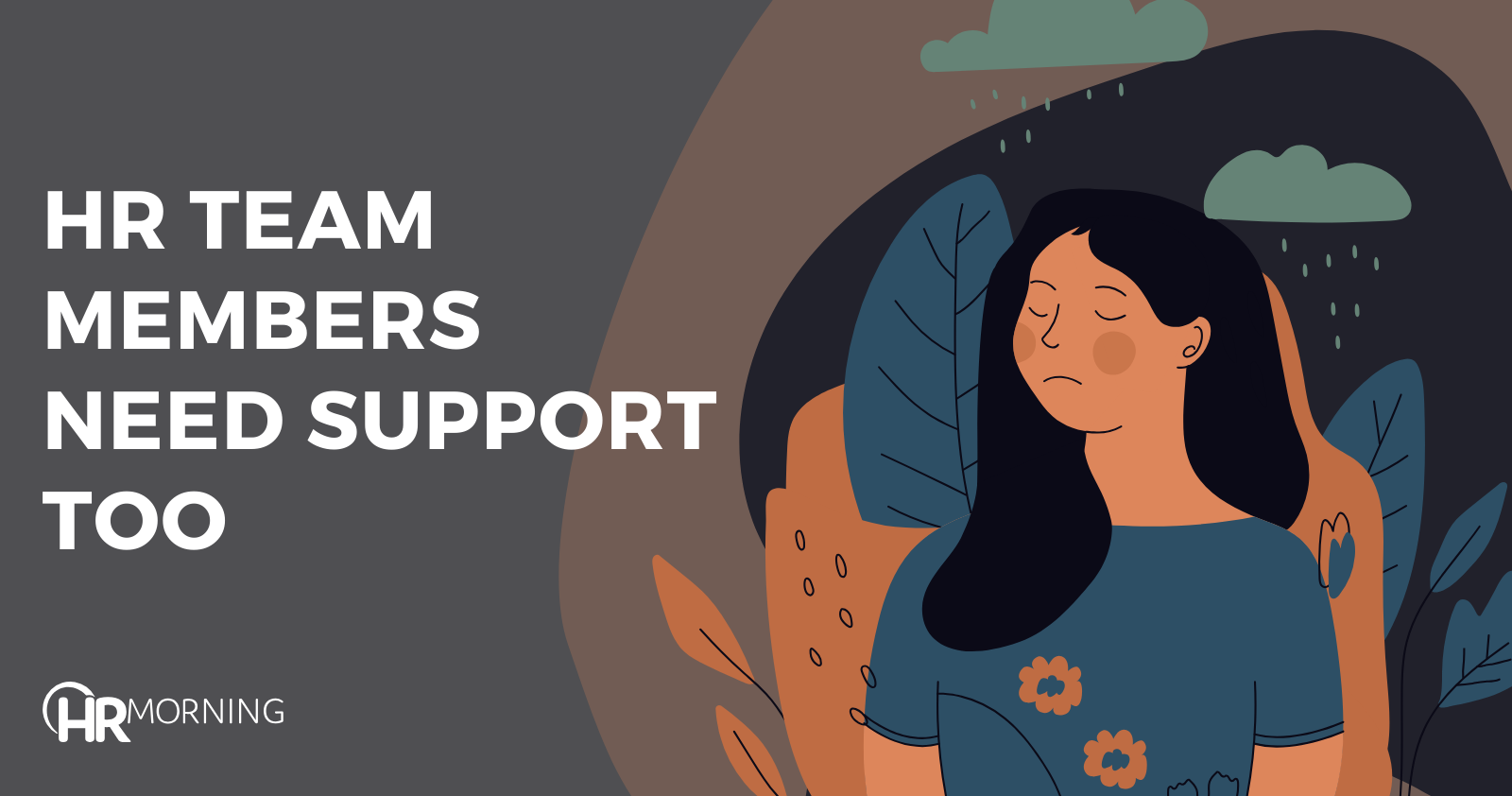This is a great time for HR pros to do a well-being self-checkup. October is National Depression and Mental Health Screening Month and October 10 was World Mental Health Day.
We also bring it up because a recent global survey conducted by Sage, a U.K.-based provider of integrated accounting, payroll and payment systems found that:
- 84% of HR professionals say they “regularly feel stressed”
- 81% say they’re “personally burned out,” and
- 62% are considering leaving HR.
And no wonder, on top of the stress from return to work orders and a complex post-COVID labor environment, there’s a garden variety of messy and difficult tasks HR pros must tackle on the front lines that can impact their mental health – everything from reductions in force and terminations that go badly to investigating incidents involving harassment and discrimination.
HR can sometimes take on a role of unofficial company therapist. So what happens when that therapist needs some therapy of their own?
Work tragedy triggers mental health struggle
HRMorning reader, Rita (for privacy, her name has been changed for this story), found herself pressed into service as the default senior leadership emergency responder after fielding a report of an unresponsive employee in a running car.
“We had to treat it like it could’ve been a work-related incident. … There were so many things to take care of and (I had to) hold it together,” she said, mentioning contacting OSHA and impounding the vehicle.
Making it particularly hard for her to hold it together was the fact that the employee who died was a man in his mid-20s, who she affectionately referred to as her “work son.”
According to Rita, police told her the employee’s death was caused by a combination of drugs and “natural causes.”
Rita was aware of mental health issues the employee had been experiencing over the past year. “The warning signs were there. … He was on my list to reach out to and pull him in and say, ‘Are you OK?'” she said, adding that she experienced strong feelings of survivor’s guilt.
She didn’t seek counseling, “but I probably should have,” Rita said. “There were days I thought, ‘I should really call the EAP.’ HR jumps in and tells all the co-workers, ‘We have this Employee Assistance Program (EAP). We’re going to have counselors on call.'”
The incident led to her leaving her internal HR role and taking a position in outsourced HR.
The takeaway: It’s perfectly normal to use the same EAP mental health care resources that you encourage your employees to take advantage of. Having personal experience with your EAP may give you fresh ideas to promote it. And if your organization doesn’t have an EAP provider, it’s time to start looking for one.
Feeling stranded on an island
HR pros are often privy to the inner workings of their organizations, so sometimes they’re in the uncomfortable position of being the first one to spot toxicity or a dysfunctional culture happening at a high level.
HRMorning reader Andrea (for privacy, her name has been changed for this story) found out just how much of an impact that can have on HR’s mental health. She discovered that the CHRO she reported to – and liked personally – was engaging in unethical behavior with a member of the company’s board.
What stopped Andrea from reporting it on the confidential hotline was the fear of backlash. The corrupt CHRO monitored the hotline.
Andrea said paralyzing anxiety set in about whether or not to be a whistleblower and contributed to a stress-induced back injury.
After calling a mentor for advice, Andrea became empowered to eventually negotiate an enhanced employment separation package that enabled her to comfortably move on to a role at another organization.
The takeaway: Identify trusted fellow HR pros who will be supportive when you need someone to talk to. There’s also the option of sharing what you’re going through on an online forum for HR pros. But for your own psychological safety, be sure to thoroughly vet any forum you’re considering participating in.



